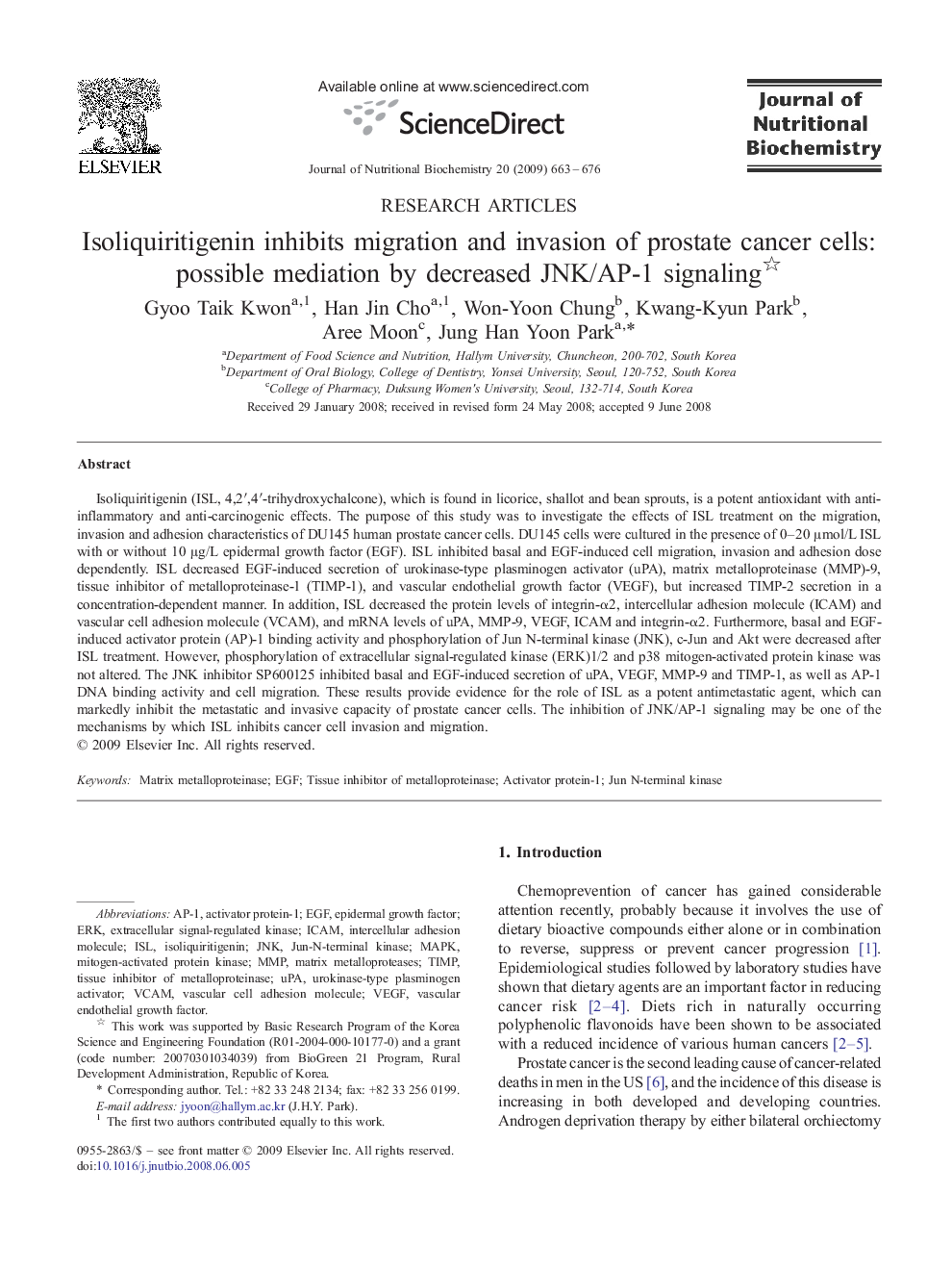| کد مقاله | کد نشریه | سال انتشار | مقاله انگلیسی | نسخه تمام متن |
|---|---|---|---|---|
| 1990255 | 1540717 | 2009 | 14 صفحه PDF | دانلود رایگان |

Isoliquiritigenin (ISL, 4,2′,4′-trihydroxychalcone), which is found in licorice, shallot and bean sprouts, is a potent antioxidant with anti-inflammatory and anti-carcinogenic effects. The purpose of this study was to investigate the effects of ISL treatment on the migration, invasion and adhesion characteristics of DU145 human prostate cancer cells. DU145 cells were cultured in the presence of 0–20 μmol/L ISL with or without 10 μg/L epidermal growth factor (EGF). ISL inhibited basal and EGF-induced cell migration, invasion and adhesion dose dependently. ISL decreased EGF-induced secretion of urokinase-type plasminogen activator (uPA), matrix metalloproteinase (MMP)-9, tissue inhibitor of metalloproteinase-1 (TIMP-1), and vascular endothelial growth factor (VEGF), but increased TIMP-2 secretion in a concentration-dependent manner. In addition, ISL decreased the protein levels of integrin-α2, intercellular adhesion molecule (ICAM) and vascular cell adhesion molecule (VCAM), and mRNA levels of uPA, MMP-9, VEGF, ICAM and integrin-α2. Furthermore, basal and EGF-induced activator protein (AP)-1 binding activity and phosphorylation of Jun N-terminal kinase (JNK), c-Jun and Akt were decreased after ISL treatment. However, phosphorylation of extracellular signal-regulated kinase (ERK)1/2 and p38 mitogen-activated protein kinase was not altered. The JNK inhibitor SP600125 inhibited basal and EGF-induced secretion of uPA, VEGF, MMP-9 and TIMP-1, as well as AP-1 DNA binding activity and cell migration. These results provide evidence for the role of ISL as a potent antimetastatic agent, which can markedly inhibit the metastatic and invasive capacity of prostate cancer cells. The inhibition of JNK/AP-1 signaling may be one of the mechanisms by which ISL inhibits cancer cell invasion and migration.
Journal: The Journal of Nutritional Biochemistry - Volume 20, Issue 9, September 2009, Pages 663–676